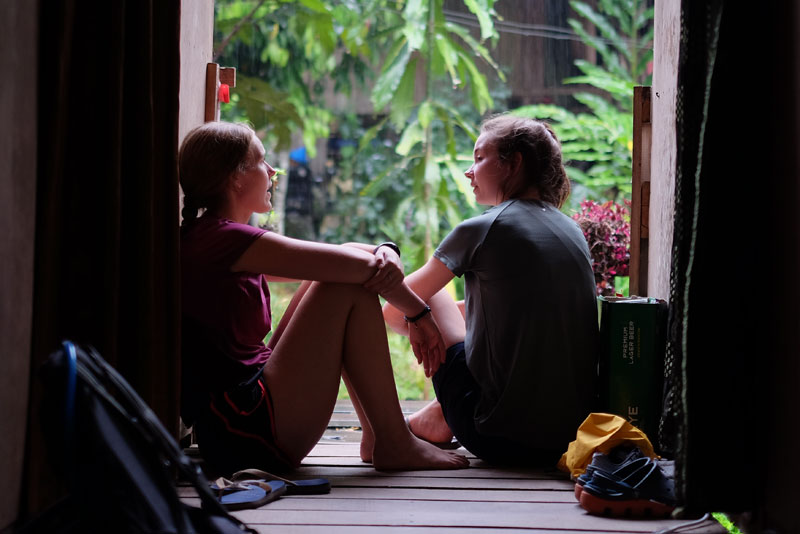At the time, there was not a lot of support for that sort of thing and it was quite an undertaking to make all the necessary arrangements—but he did it.
When he returned to Canada, he told me stories about delivering babies, performing spinal punctures and all sorts of other things that until that time, he had had little experience with.
But what I remember most was him telling me that the experience gave him a whole new perspective on why he was studying medicine, and what was really important to him, both as a doctor and as a person.
The opportunities to broaden your horizons while studying at a college or university don't stop at the edge of the campus. In fact, the possibilities of combining your education with work-abroad experience are virtually limitless, and the only difference between the people who do it and the people who don't, is a bit of determination and planning.
Likely programmes
Some university programmes will lend themselves to overseas work that is directly related to your area of study. If you happen to be studying engineering, geology, computers or telecommunications, you're in luck.
According to Jean-Marc Hachey, author of The Canadian Guide to Working and Living Overseas, professionals in these fields tend to have the best chances of finding work outside of Canada at the moment.
Finance, accounting, medicine, agriculture, law and teaching also offer good opportunities, and programmes like business and international studies often groom students for international work experience.
If you are enrolled in a co-op program, or your studies involve mandatory work placements or a practicum, check with a faculty advisor or co-op coordinator about the opportunities that they know about. A bit of digging could see you travelling on your work term!
Other options
Not in one of these high-demand programmes? Don't count yourself out just yet. According to Kate Jennings, Education Abroad Advisor at Queen's University, success often depends more on the individual than on the programme one is studying. A person who is flexible, resilient and willing to put in some time stands a very good chance of finding something that suits them.
There is an absolute raft of options out there—everything from working in a pub in the UK, to teaching English, to assisting on archeological digs in South America. "The resort and tourism industry is a great place to look for short term international work," says Jennings, "Especially [for people who speak] multiple languages."
Where to start: Self Evaluation
A good place to start is by doing a bit of self-analysis to determine what type of opportunity is best for you. How adventurous are you? Can you be flexible and adaptable? Can you be organized if you need to be? Where would you like to, or be willing to go - and for how long?
"Ask yourself, 'What is my ideal work-abroad experience?' What would you really like to be doing and where?"
It's also important to sort out what your expectations are. Is this purely an opportunity to travel and experience another culture? Are you hoping to develop or improve your language skills? How important are the salary and the job's relevance to your field of study?
The number of possibilities, once you start looking, can be overwhelming and it helps to have a sense of what you would like to do. Often it's a process of elimination, Jennings observes. Where do you not want to go, and what do you not want to do?
"Ask yourself 'What is my ideal work-abroad experience?' What would you really like to be doing and where?" suggests Jennings. "Some of the hardest people to place," she laughs, "are the ones who say, 'I want to go anywhere and do anything, I don't care.'"
Start now
Don't be fooled. Organizing a work abroad experience can be an involved process and it takes time.
"I get a lot of students who have just graduated and are wanting to start work in September," says Jennings. "They've given themselves two months to do a job search and everything else. If people think they're going to apply [for an overseas job] and move within a couple of months, it's usually not going to happen."
Jennings recommends that people allow themselves six months to a year in order to properly research the options and make all the necessary preparations for a successful experience.
Incorporating an international work experience into your college or university studies can be one of the best things you can do for yourself. There are few better ways to broaden horizons, learn about yourself and get a glimpse of the big picture.
Not all work abroad experiences are as dramatically life changing as my friend's was, but any opportunity to learn more about the world by living and working in a new place and getting to know another culture is a pretty good start.
Add this article to your reading list








